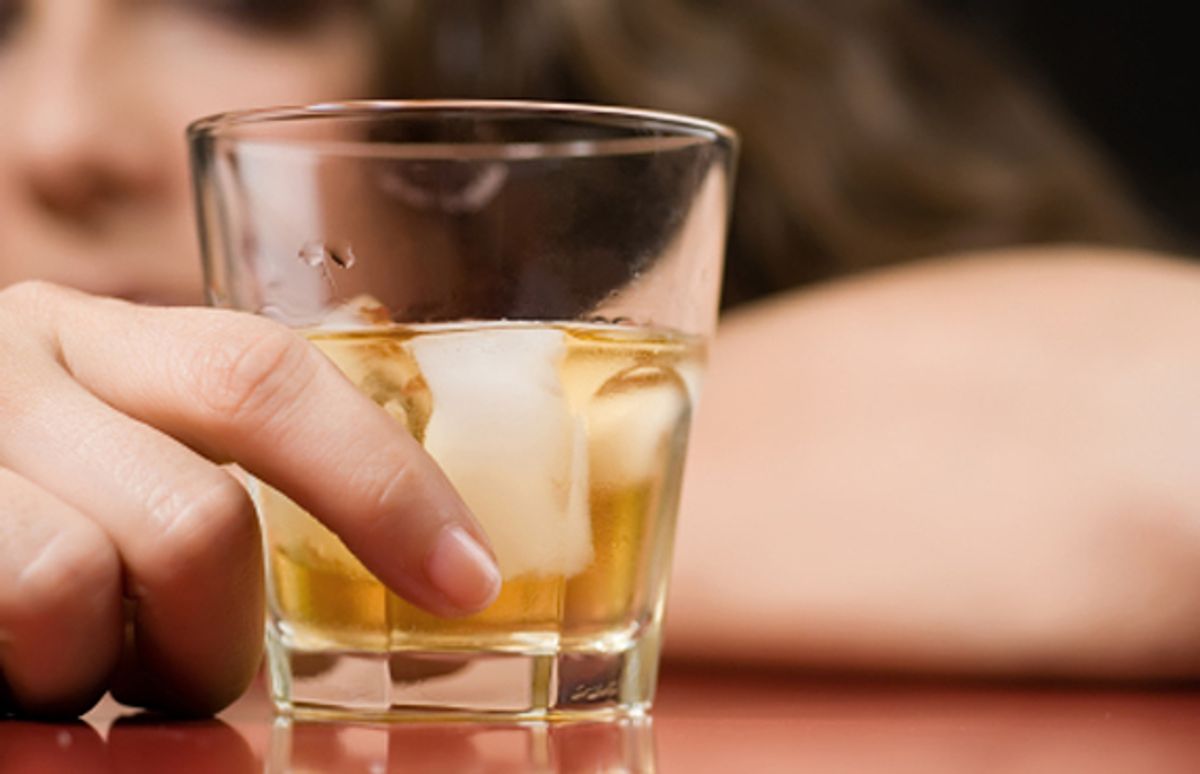Most Americans know someone who is suffering from addiction in one form or another — alcoholism is perhaps the most pervasive of these chemical afflictions. Furthermore, the use of alcohol has become an integral part of almost all ritualized social activities across Western culture. While controlled, social drinking doesn’t pose any adverse physical or psychological side effects, heavy drinking certainly does. For those heavily afflicted alcoholics, medical cannabis can be beneficial as both an alcohol substitute and sedative.
Alcoholism
Drinking on a daily basis can have irreversible consequences on the body and mind. To illustrate, studies show that “[d]ecades of heavy daily heavy drinking can lead to physical dependence on alcohol and life-threatening withdrawal symptoms if one stops drinking without tapering off or entering a medical detox”. Moreover, one of the key elements of alcoholism is “binge-drinking,” which is evidenced in an addict’s inability to stop drinking once they start. These alcohol binges, or “benders,” often last several days for the seasoned alcoholic and more-often-than-not do irreparable damage to one’s family and professional life. Point being, for alcoholics, the only real choice in beating their affliction is to entirely quit drinking. With this notion in mind, many forward thinking recovery programs are replacing the daily use of alcohol with that of medical marijuana.
America needs different recovery programs
The conventional Western model of alcohol treatment has a statistically poor success rate, as approximately 50% “of individuals who begin an addiction treatment program relapse within six months”. Even more, doctors are known to prescribe rather powerful and addictive benzodiazepines to aid in alcohol withdrawal. While it’s obvious that cannabis use as an alcohol recovery tool is quite controversial in the conventional American mindset, studies show that it can be a powerful recovery tool.
Alcoholism Drinking on a daily basis can have irreversible consequences on the body and mind. To illustrate, studies show that “[d]ecades of heavy daily heavy drinking can lead to physical dependence on alcohol and life-threatening withdrawal symptoms if one stops drinking without tapering off or entering a medical detox”. Moreover, one of the key elements of alcoholism is “binge-drinking,” which is evidenced in an addict’s inability to stop drinking once they start. These alcohol binges, or “benders,” often last several days for the seasoned alcoholic and more-often-than-not do irreparable damage to one’s family and professional life. Point being, for alcoholics, the only real choice in beating their affliction is to entirely quit drinking. With this notion in mind, many forward thinking recovery programs are replacing the daily use of alcohol with that of medical marijuana. America Needs Different Recovery Programs The conventional Western model of alcohol treatment has a statistically poor success rate, as approximately 50% “of individuals who begin an addiction treatment program relapse within six months”. Even more, doctors are known to prescribe rather powerful and addictive benzodiazepines to aid in alcohol withdrawal. While it’s obvious that cannabis use as an alcohol recovery tool is quite controversial in the conventional American mindset, studies show that it can be a powerful recovery tool.
Cannabis and quitting drinking
In the nomenclature of recovery studies, cannabis aided alcoholism recovery is referred to as “Marijuana Maintenance”. For starters, Marijuana Maintenance offers a relatively un-impactful solution to alcohol cravings, as addicts will smoke or ingest cannabis instead of taking a drink. Along this line of thought, the Harm Reduction Journal reports that cannabis can curb an addict’s alcohol cravings and it is a viable, natural alternative to prescription medications such as benzodiazepines. Secondly, a large quantity of drinkers medicate with alcohol to relieve psychological conditions such as “depression, anxiety, stress, or PTSD”. Studies show that responsible cannabis use can provide relief from these same emotional ailments, without the dangers of withdrawal and addiction as seen with alcohol or prescription medication drugs.
Kent Gruetzmacher M.F.A. is a Colorado based freelance writer and the Director of Business Development at Mac & Fulton Executive Search and Consulting (www.mandfconsultants.com), an employment recruiting firm dedicated to the indoor gardening and hydroponics industry. He is interested in utilizing his M.A. in the Humanities to critically explore the many cultural and business facets of this youthful, emergent industry by way of his entrepreneurial projects.

Shares